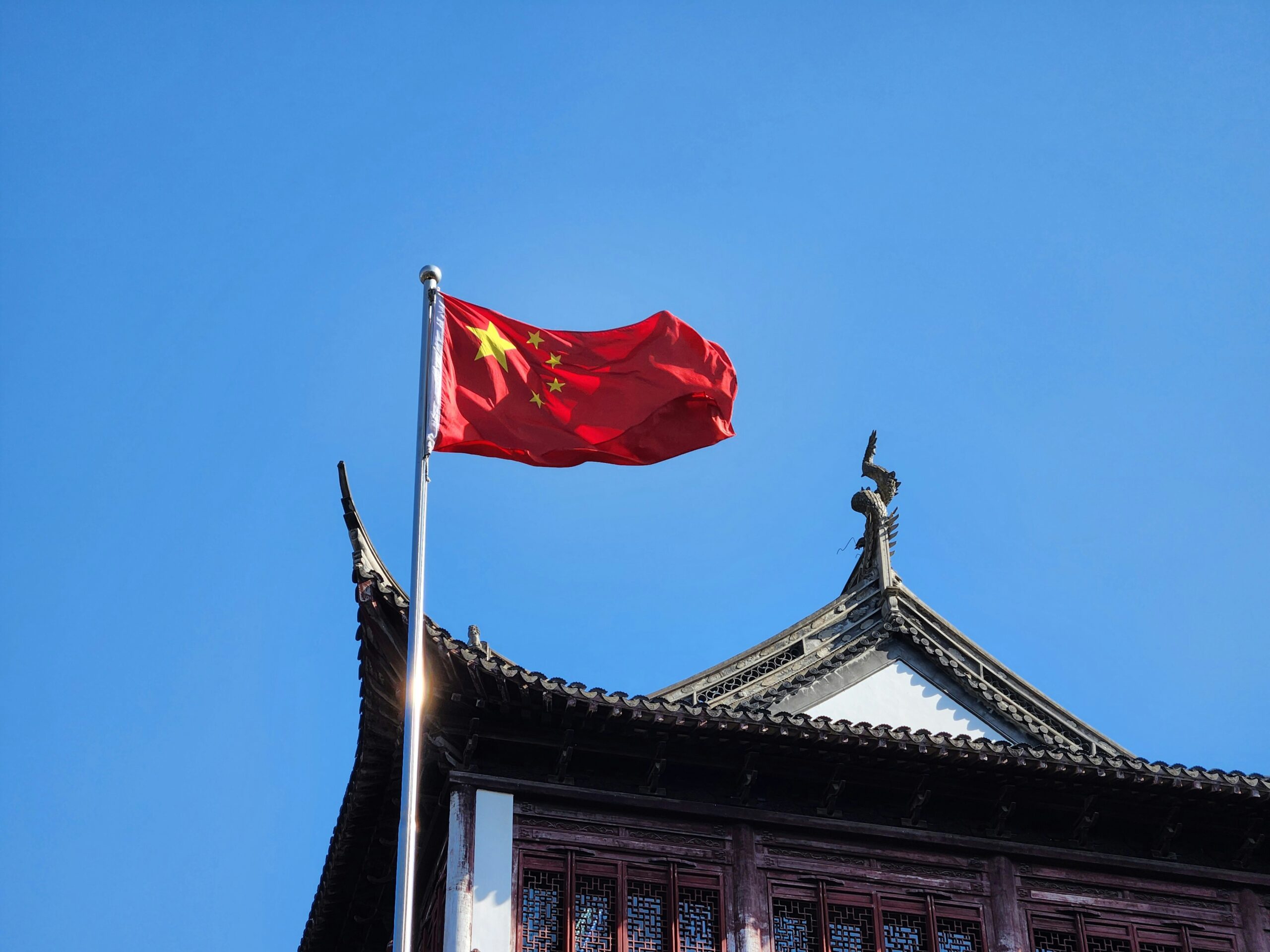China has rapidly emerged as a vital hub for clinical research, driven by its large population and an evolving regulatory environment. However, foreign companies conducting clinical trials in China must carefully navigate the country’s strict regulations on human genetic resources (HGR).
The regulatory framework for HGR in China is built on several key laws and guidelines. These include the Biosecurity Law enacted in 2020, the 2019 Regulations on the Administration of Human Genetic Resources (“HGR Regulations”), and various administrative guidelines and regulations issued by the Ministry of Science and Technology (MOST) in recent years.
In June 2023, MOST introduced the “Detailed Implementation Rules for the Management Regulations of Human Genetic Resources” (Detailed HGR Rules). These rules provide updated compliance requirements and greater clarity for foreign sponsors.
China’s Objectives of HGR Implementation Rules
- Highlight the Chinese government’s focus on national security and the protection of personal data
- Aim to strengthen the protection and regulation of human genetic resources, promote their responsible use
- Ensure national security and personal data protection, while carefully managing foreign entities’ involvement with human genetic resource information in China.
Includes:
- Human genes, genome data, and other genetic information derived from human biological materials
- Biomarker data containing genetic and genomic information.
- Collection of HGR of important genetic families. The term “important genetic families” refers to groups of individuals connected by blood relations who share hereditary diseases or inherited physical or physiological traits. These traits or conditions must persist across at least three generations within the family. Common conditions such as hypertension, diabetes, red-green color blindness, and hemophilia are excluded from the definition of important genetic families.
Excludes:
- Non-genetic data, such as clinical, imaging, protein, and metabolic data, distinguishing genetic resources from broader biological and medical datasets.
Who Qualifies as a “Foreign Party”?
The HGR Implementation Rules broadly define “foreign parties” to include foreign organizations, institutions, and entities established by or under the “actual control” of foreign entities or individuals.
- Organizations and Institutions Established or Controlled by Foreign Entities or Individuals:
- Entities are classified as foreign if they meet any of the following criteria:
- Foreign entities or individuals directly or indirectly hold more than 50% of the shares, equity, voting rights, property shares, or similar rights and interests.
- Foreign entities or individuals hold less than 50% of the shares, equity, or voting rights but still have sufficient voting power or influence to dominate or significantly impact the institution’s decision-making, management, or operations.
- Entities Under Significant Foreign Influence:
- Entities significantly influenced by foreign parties via agreements, investments, or management control—including those with Variable Interest Entity (VIE) structures—are considered foreign parties.
- Chinese entities using VIE structures will also be classified as foreign parties if “investment, agreements, or other arrangements by overseas organizations or individuals” enable control or significant influence over the entity’s decision-making, internal management, or major operations.
- Entities in Hong Kong and Macau:
- Entities in Hong Kong and Macau that are controlled by Chinese capital are treated as Chinese entities.
Key Updates in HGR Collection Requirements
The Detailed HGR Rules introduced significant changes aimed at streamlining the approval process for clinical trials:
- Exemptions for Clinical Trials: HGR collections in international cooperative clinical trials for drug or device marketing approval no longer require collection approval, even for studies involving more than 3,000 cases. This is particularly beneficial for foreign companies conducting international cooperative clinical trials.
- Rare Disease Research: Collection approval requirements for rare disease studies have been eliminated, facilitating research in this niche area.
- Large-Scale Population Studies: The collection of human genetic resources (HGR) for large-scale population studies involving more than 3,000 cases requires approval.
- Such large-scale studies include, but are not limited to, cohort studies, clinical research, and physiology studies.
- Collections conducted as part of clinical trials to obtain marketing approval for drugs and medical devices are exempt from collection approval requirements.
Requirements for Foreign Parties Utilising Chinese HGR
The rules place specific requirements on foreign entities conducting activities involving Chinese HGR:
Mandatory Collaboration
- Foreign parties must collaborate with Chinese partners to collect or preserve HGR materials within China.
- Cooperation agreements must address intellectual property (IP) ownership, benefit sharing, confidentiality, and other legal aspects.
Full Participation by Chinese Partners
- Foreign collaborators, working alongside their Chinese partners, must ensure that Chinese entities and researchers are actively involved throughout the entire process and meaningfully contribute while sharing relevant rights and benefits in accordance with the law.
- During international scientific research collaborations, all records and data derived from the use of HGR within China must be fully accessible to the Chinese entity.
- Foreign parties are prohibited from independently biobanking HGR in China. Biobanking—defined as the preservation of legally obtained HGR under suitable conditions for future research—must comply with legal requirements and involve Chinese collaborators.
Use Restrictions
- Foreign parties are prohibited from using HGR materials or information for purposes that could endanger public health, national security, or social interests in China.
- The use of such materials or information is restricted to purposes approved by the Ministry of Science and Technology (MOST) or agreed upon by the resource providers.
- Foreign parties are also not permitted to buy or sell Chinese HGR materials.
Intellectual property (IP) Sharing Between Chinese and Foreign Parties
A critical aspect of the HGRAC review and approval process is the arrangement for intellectual property (IP) sharing between Chinese and foreign parties.
Chinese and foreign parties have greater flexibility in deciding data ownership. Under the current regulatory framework, a distinction exists between patents and other research outputs, such as clinical trial data. Unlike patents, ownership of research data does not need to be jointly held, allowing Chinese and foreign parties more autonomy in establishing data ownership arrangements.
Research data holds significant value for pharmaceutical companies, serving dual purposes. It supports drug market authorization submissions across jurisdictions and plays a crucial role in subsequent licensing, cooperative research and development, and technology transfer initiatives. Moreover, such data may even form the basis for royalty payments after licensed patents expire, as part of licensed know-how.
It is important to note that conducting a clinical trial in China without obtaining the necessary HGRAC approval can result in severe administrative penalties, including the confiscation of HGR materials and associated data, as well as fines.
Practical Implications for Clinical Trials in China
Below are key considerations and actions that foreign companies should take to ensure smooth compliance and successful trial execution.
Engage a Reliable Chinese Partner
- Collaboration is Mandatory: Foreign parties must partner with a Chinese entity to collect, store, or use human genetic resources in China. The Chinese partner must play an active role throughout the entire process.
- Partner Selection: It is crucial to select a partner with deep expertise in HGR compliance and a strong understanding of local laws and regulations. The Chinese partner should have experience in handling the required approvals, managing HGR data, and navigating potential regulatory challenges.
- Due Diligence: Conduct thorough due diligence on the potential partner to ensure they have a history of compliance with China’s regulatory framework.
Draft Clear Agreements
- Address Legal and Compliance Matters: Cooperation agreements between foreign and Chinese parties must clearly outline the terms related to intellectual property (IP) ownership, data sharing, benefit-sharing, confidentiality, and the management of HGR materials. Ensure that all parties understand their roles and responsibilities under the agreement.
- IP Ownership: Since there is greater flexibility in deciding data ownership between foreign and Chinese parties, it’s important to explicitly define the ownership structure in the agreement. This should be done with attention to ownership of research data, which may not need to be jointly held.
- Legal and Regulatory Obstacles: The agreements should also address potential hurdles related to the HGR collection process, approval timelines, and any other regulatory issues that may arise during the clinical trial. Consider involving legal experts who are familiar with Chinese laws on HGR compliance.
Plan for Regulatory Approvals
- Regulatory Process and Timelines: The typical review timeline is 16 business days from the acceptance of the application. Be prepared for delays if the study requires additional documentation or clarifications.
- The application jointly submitted by the collaboration parties (foreign and Chinese) includes the following documents:
- Ethics Committee (EC) approval from both parties, with Chinese translation.
- If HGR materials are obtained from a commercial supplier, EC approval from the supplier is required, covering the original collection, use, and patient consent.
- If the foreign party cannot provide EC approval, a written acknowledgement from the Chinese party is acceptable.
- Study plan/protocol.
- Full collaboration agreement (with Chinese translation), without redactions.
- Letter of undertaking from medical institutions in China collecting and/or storing HGR materials (if applicable).
- Plan for Changes in Study Scope: Any changes to the clinical trial’s scope, including changes in the number of cases or the study’s focus, may trigger the need for new approvals. Ensure that your trial design is flexible enough to accommodate these potential changes and that you have a process in place for obtaining the required approvals.
- Material Usage: Be mindful of the restrictions on the use of HGR materials. Foreign parties must comply with the approved purposes outlined in the cooperation agreement or as authorized by MOST. Use of HGR for purposes outside of these approved activities can result in penalties.
Maintain Transparency
- Full Access to Data for Chinese Partner: Ensure transparency and collaboration by providing full access to all records and data related to the use of human genetic resources in China. This transparency is crucial for maintaining a strong working relationship with your Chinese partner and ensuring compliance with Chinese regulations.
- Backup and Reporting Requirements: Be prepared to meet all backup and reporting requirements, including ensuring that the Chinese partner has access to data and records for audit purposes. This may include regularly updating the Chinese partner on the progress of the clinical trial and providing them with reports as required by MOST.
- Data Management and Security: Implement robust data management systems that ensure the security and integrity of HGR data. Given the sensitivity of genetic data, both parties should agree on protocols to protect data privacy and prevent unauthorized access or use.
China’s updated HGR regulations reflect a balancing act: encouraging international collaboration while safeguarding its genetic resources. For foreign companies, these rules offer greater clarity and exemptions for clinical trials but also demand rigorous compliance.
By aligning with local partners and adhering to the Detailed HGR Rules, foreign sponsors can navigate this complex regulatory landscape and unlock opportunities in one of the world’s most promising clinical research markets.
References
- Biosecurity Law of the PRC (《中華人民共和國生物安全法》 Link: https://www.gov.cn/xinwen/2020-10/18/content_5552108.htm
- Implementation Rules of the Regulations on the Administration of Human Genetic Resources issued by the Ministry of Science and Technology No. 21. Link: https://www.most.gov.cn/xxgk/xinxifenlei/fdzdgknr/fgzc/bmgz/202306/t20230601_186416.html
- Aaron Gu, Pengfei You, Duzhiyun Zheng, Fengqi Yu, Highlights on HGR Regulation Implementation Rules (2023). Legal Commentary by Han Kun Law Offices






